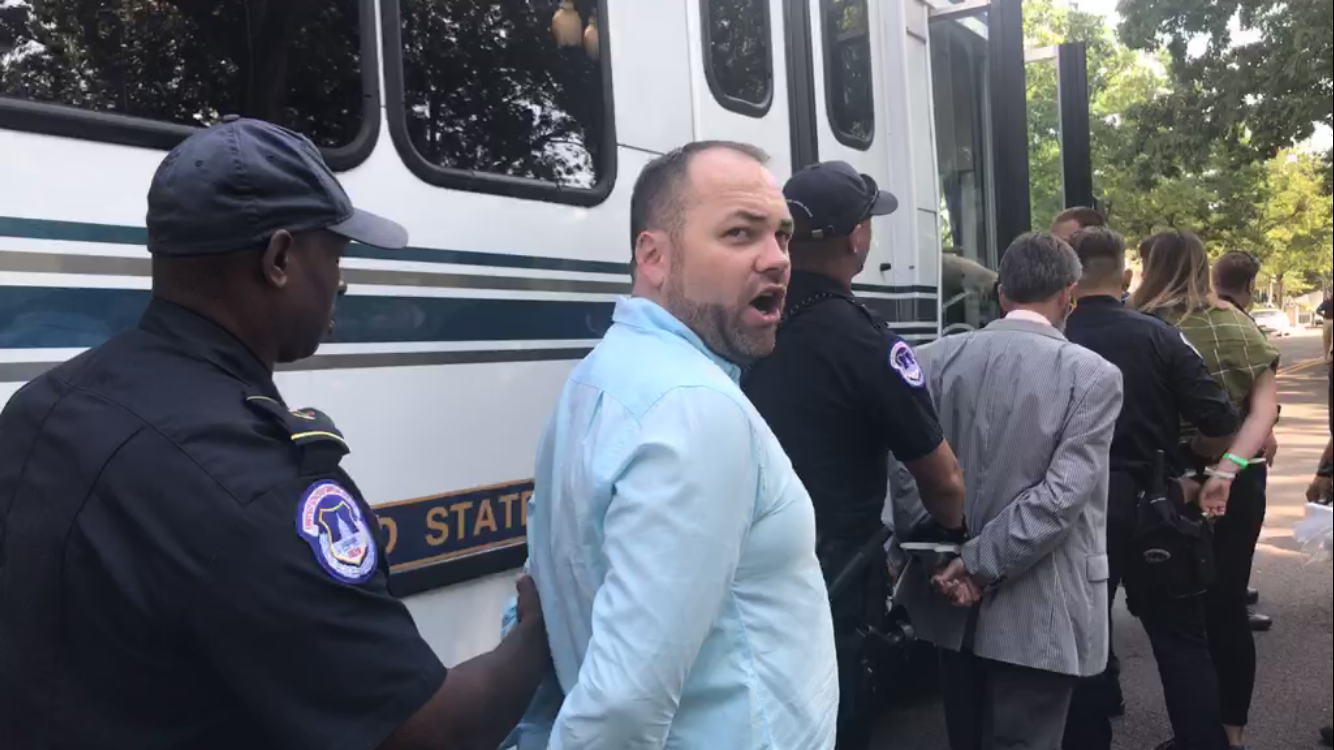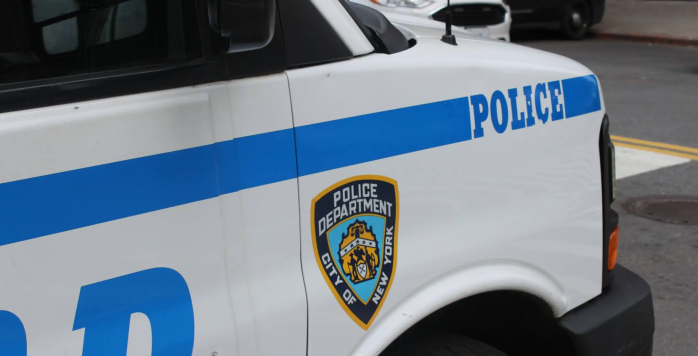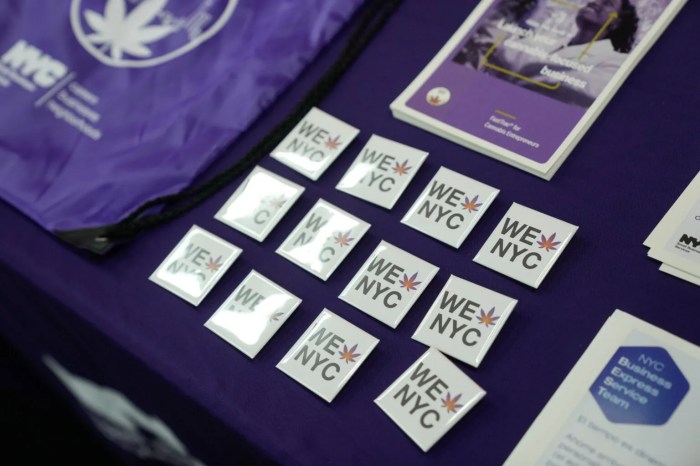
BY PAUL SCHINDLER | One day after the Trump administration and the U.S. Senate’s G.O.P. leadership failed to dismantle President Barack Obama’s Affordable Care Act, up to 500 activists descended on Senate offices demanding that Republicans work on “providing healthcare rather than taking it away.”
That’s how Eric Sawyer, the vice president of public affairs and policy at Gay Men’s Health Crisis, explained the efforts of his group and other healthcare advocates in Washington on July 19. In tandem with hundreds of others — including about 200 New Yorkers representing Housing Works, VOCAL-NY, Rise and Resist, Gays Against Guns, ACT UP and Positive Women’s Network — GMHC staff and clients staged sits-ins at the offices of the 49 G.O.P. senators who had not yet rejected Majority Leader Mitch McConnell’s call for an outright repeal of Obamacare without putting forward any immediate replacement.
A total of 155 protesters were arrested.
McConnell adopted that strategy on July 18, after it became clear the Republicans lacked the 50 votes needed to pass his Obamacare replacement bill. The repeal-with-no-replacement option has been scored by the Congressional Budget Office as even worse than McConnell’s replacement bill, leaving 32 million more Americans uninsured by 2026, versus the 22 million who would be forced out of care under the measure just abandoned. Three Republican senators — Susan Collins of Maine, Shelley Moore Capito of West Virginia, and Lisa Murkowski of Alaska — didn’t even need the C.B.O. scoring to reject the outright repeal option, announcing their opposition just hours after McConnell signaled his intentions. The G.O.P. leader plans a vote next week — one he seems destined to lose — to give his members the chance to show just how little they like Obamacare.
Corey Johnson, the New York City Council’s openly gay Health Committee chairperson, is unwilling to bet against McConnell’s ability to still turn things around.
“The fight isn’t over as we saw with the House, where Paul Ryan pulled a rabbit out of a hat,” Johnson said as he headed over to sit-in at McConnell’s office, where he was later arrested. “The fight has to continue until straight repeal and repeal-and-replace are both abandoned by the Republicans.”
As New York State’s only openly H.I.V.-positive politician, Johnson said he was in Washington as one of hundreds of activists with pre-existing conditions that would be penalized severely under all the Republican alternatives that have been discussed.
“So now we’re here to tell our stories and to fight back against any effort to curtail healthcare in this country,” he said.
Johnson said most of the protesters favor a single-payer approach that would truly deliver universal care. But he acknowledged that the only feasible next step, as long as Republicans hold the Senate and House, is a bipartisan effort to steady the insurance exchanges established under Obamacare. Ohio’s Republican governor, John Kasich, a tough critic of Trump on his healthcare initiative, wrote about the need for that type of bipartisanship in a July 19 New York Times op-ed.
For his part, President Donald Trump, responding to the expected failure of a repeal-only vote, is not talking about any immediate fixes, telling reporters on Tuesday, “I’m not going to own it. I can tell you the Republicans are not going to own it. We’ll let Obamacare fail, and then the Democrats are going to come to us.”
Announcing that strategy out loud, however, may make it more likely that voters will come to see that the president does own any problems that become worse going forward.
The success healthcare advocates have enjoyed in mobilizing grassroots opposition to the Republican efforts on healthcare is striking. This week was the third time that GMHC and other New York AIDS advocates faced arrest in Washington this month. Two weeks ago, roughly 40 activists were arrested in Senate sit-ins, with that number roughly doubling the following week. Sawyer said he expected 100 or more to be arrested in this week’s action, though no final number was available as of press time.
Activists have also been at work in New York putting pressure on those calling for the A.C.A.’s repeal. On July 6, dozens of protesters affiliated with Rise and Resist and ACT UP descended on the Park Ave. home of billionaire David Koch, who with his brother Charles, funds Americans for Prosperity, which since 2010 has supported Tea Party efforts to quash the Obama legislation.

















